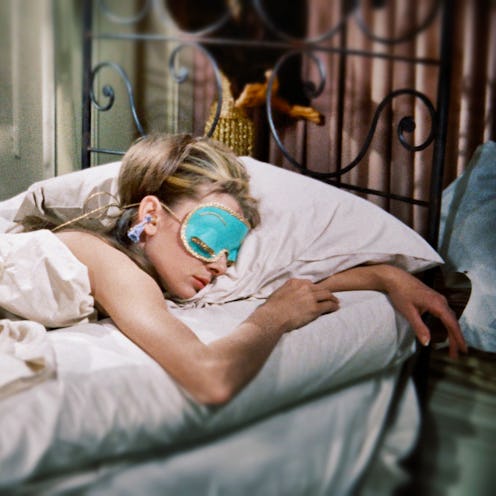A few years ago, and for the entirety of my life before that, I was a morning person. Then I quit my job, moved to Bali and just generally checked out for a while. My new freelance existence no longer required that I get up early, so I stopped. When I went back to the 9-5 life, I had to find my inner early riser again, but this meant waking at a relatively modest 8am. To be clear, I’ve never, ever gotten up at 4:45am, aside from stumbling out of bed and into an Uber X before a flight. Here’s why I started, and how I went from being a snooze-button addict to someone who’s lived half a day before most people even begin to stir.
Why I Decided To Get Up Before Dawn
I absolutely love my job, and I'm not just saying that because my boss is reading this story—it's by far my favorite of all the jobs I've had. That said, I have other interests as well, as most people do, and additional creative aspirations. I've found that life goes by quickly, and if you don't set aside time to focus on things outside of your day job, you may end up with some regrets. I work best in the morning and have found it to be the one time of day no one can take from you. So, my New Year's resolution this year was to start getting up at 4:45am on weekdays to work on my personal projects before heading into the office.
Prior to this experiment, I went to bed between 12pm and 1am, and woke between 7 and 8 (read: 8:15) in the morning. In order to pull myself out of bed several hours earlier, I know I'll have to try—for the first time in my life—to get to sleep long before the clock strikes midnight. The smart method for doing so would be to end the day in increasingly earlier increments, but instead I choose to dive right into my new routine. My goal is to be asleep by 10 every night.
Full disclosure: I suffer from insomnia. Consequently, I have no idea how I'm going to get myself to sleep by 10pm. I need a little help in the beginning, but once I get in the habit of waking up long before dawn, I quickly learn I'm tired enough by 10:30 or 11pm (an hour past my goal bedtime) to fall asleep naturally. For the first two weeks, I adhere pretty closely to my 4:45 wakeup time, and I find that the key is to never, ever hit the snooze button. If you make this fatal mistake, I learn, you're sunk. Before long, it's 6:30am before I get out of bed instead of 4:45am, and since I leave for work around 8, I end up with only an hour of personal work time as opposed to the 2.5 hours I originally aimed for.
There are only so many hours in a day, so if your goal is to get up early, work before work, then work full time and still have some semblance of a social life, something is going to suffer. I initially decide my social life will be what takes a hit, but a few weeks in, this single gal gets antsy and can no longer resist the siren song of Raya dates. Thus, I stop meeting my 10:30pm bedtime, thus, the snooze button. One other thing suffers: workouts, which stop completely.
After a month of my little experiment, I'm exhausted. But I'm going to keep my new morning routine (with some slight adjustments)—my goal is to be up by 5:30 and fit in a 30-minute workout. I love the feeling of starting my day early, so I don't feel like my entire life is my job—no matter how much you love your career, this feeling is not healthy. In the mornings, no one bothers me. I don't check my e-mail. I focus, I get in the zone and when it's time to come to the office, I feel energized mentally and emotionally (if a bit fatigued physically).
For those who, like me, have something they've always wanted to create outside of their jobs, I highly recommend rising at least an hour earlier than you normally do. If you plan your side work for nighttime or the weekends, trust me, you'll probably never do it—there's simply too much fun (read: wine) to be had. That's what's so great about the crack of dawn—there's nothing else to do at that hour, and I find that once I turn off my alarm and shuffle to the coffee maker, I'm actually glad to be up. If you try this experiment, my advice is to allow yourself at least one day a week to sleep in—you'll enjoy that extra rest more than you've ever enjoyed anything in your life, and you'll be energized to start fresh the next day, bright and early.
